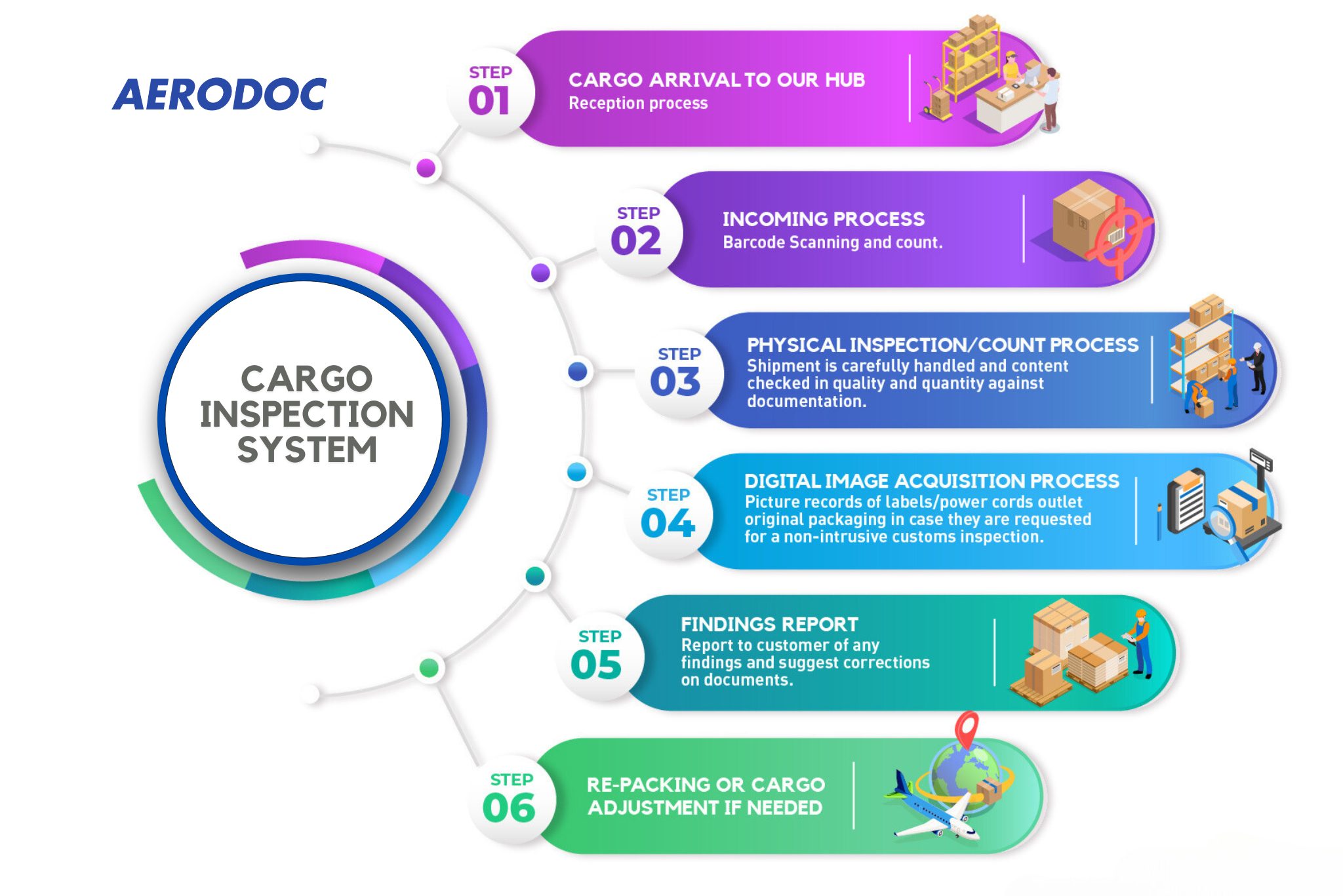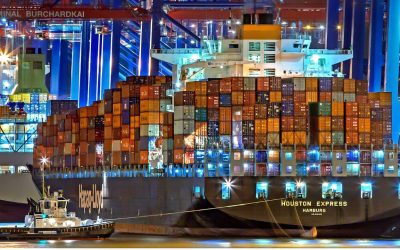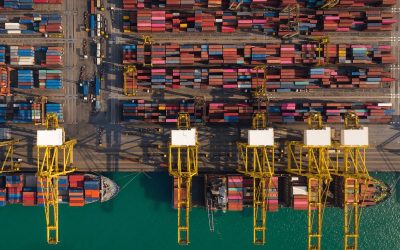Aerodoc’s Import Service provides flexible and efficient solutions to ensure a soft import process without customs issues.
Importing is a paramount stage in any international business operation. With its extensive experience in the technology industry, Aerodoc provides tailored solutions to support customers at every step of the supply chain process, including its Import Service. Below, we break down the key components of this service and how it can streamline a company’s logistics operations.
The Rise of Import Services
More and more businesses are opting for customized import services. According to Estefania Sisatzky, EVP of Operations & Customer Experience at Aerodoc, “We’re seeing a trend where customers are contracting only our import services, rather than our full DDP with IOR offering.”
Unlike competitors, Aerodoc offers flexibility through a pick-and-choose approach, allowing customers to select only the needed services.
Sisatzky adds, “We’re seeing a surge in demand for the final stages of the process: importation plus IOR, without including origin and freight.” This indicates that customers prefer to manage steps such as physical inspections or transportation themselves but trust Aerodoc to handle one of the most crucial phases of the logistics process.
However, this trend requires customers to be mindful of certain factors, such as the importance of proper physical inspections of merchandise at origin. When they choose to contract only the import service, this becomes their responsibility.
The Importance of Physical Inspection in the Import Service
Physical inspection of goods is a step that shouldn’t be overlooked. This process ensures that the customs declaration aligns with the physical condition of the products, avoiding potential issues during customs clearance.
Sisatzky notes, “To ensure a smooth customs process, we must guarantee that the customs declaration accurately reflects the physical aspects of the goods, the accompanying documents, and the tariff classifications assigned to each item.”
Aerodoc offers the option to perform physical inspections at its Miami hub or remotely at any other location. It provides customers with complete guidance to ensure every process step is executed correctly. When customers take charge of the physical inspection, they must perform it accurately, as any errors can result in additional costs and delays.
Aerodoc’s Physical Inspection System
The physical inspection process developed by Aerodoc is a critical element of its success as a leading logistics provider in the technology industry. This system allows shipments to be evaluated qualitatively and quantitatively before entering the destination country. As a result, products arrive with all necessary certifications and documentation, ensuring smooth customs inspections.
This system streamlines the customs process, reducing customers’ costs and time. Sisatzky mentions, “This process brings cost and time savings in the destination country for our customers, ensuring successful customs clearance, with full alignment between the shipment and its documentation.” Additionally, Aerodoc stands out from other importers by offering this kind of pre-origin inspection, something not all companies in the industry can guarantee.

Sisatzky emphasizes that “to perform this type of inspection, it’s necessary to know how to handle the equipment. This includes considering the destination country, taking photographs as needed, and unpacking the product in a way that doesn’t interfere with the subsequent customs clearance process at the destination.”
Another important point highlighted by Sisatzky is that “we often act as our customers’ eyes when handling shipments. Sometimes, they buy products, and suppliers make mistakes when shipping them. Our Physical Inspection System detects those discrepancies and reports them to the customer for their resolution, either correcting documentation to proceed to shipping, waiting for the arrival of the missing merchandise, or providing support to manage the return of the excess merchandise.”
Challenges in Logistics
The surge in import services in recent years highlights a pressing need to address inefficiencies in traditional courier systems. Issues ranging from damaged shipments to delayed deliveries, substandard service quality, and logistical gaps have forced companies to rethink their approach to product transportation.
One of the most pain points in courier logistics is the poor condition of the goods delivered. This often results from inadequate packaging or mishandling during transit. For businesses, such failures undermine customer satisfaction and erode brand reputation. Expert logistics providers in the import sector have mitigated these challenges by prioritizing customized packaging solutions and implementing rigorous employee training for handling delicate or high-value items.
Delivery delays, another recurring issue, further exacerbate the problem. While unforeseen circumstances can cause disruptions, customers expect timely deliveries with clear communication. Persistent delays can lead to substantial losses, particularly during peak seasons, when the stakes for supply chain efficiency are highest.
Geographic limitations are another challenge in which import services excel. Traditional couriers frequently struggle to extend their reach to remote or underserved regions, constraining market access for businesses. Advanced import networks, however, leverage extensive infrastructure and partnerships to cover a broader range of destinations, including international markets with complex regulatory environments. Cutting-edge tracking technologies often supplement these services, providing real-time updates and enhancing customer confidence.

Adherence to delivery instructions is another critical factor in successful logistics operations. Mishandling fragile goods, ignoring specific placement requirements, or failing to secure customer signatures can severely impact service quality. Leading import providers distinguish themselves by ensuring precise execution of instructions, facilitated by well-trained personnel and advanced systems for delivery oversight.
To effectively address these logistical challenges, many companies are turning to specialized providers offering comprehensive warehousing and fulfillment services. These services include inventory management, secure warehouse storage, accurate order fulfillment, and shipping logistics, all of which ensure goods arrive promptly and in optimal condition.
Advantages of Working with Import Service Experts
Success in managing imports requires an experienced team that understands each country’s regulations. According to a consulting firm Grand View Research report, the transportation and logistics business is expected to grow by 8.6% annually through 2030, highlighting the importance of working with specialists in these services.
Partnering with a company like Aerodoc allows businesses to reduce operational costs and eliminate errors in handling customs procedures. A study from Aberdeen Group noted that companies that choose professional providers in the import-export industry can reduce operational costs by up to 90%.
PleDDase contact us if you want to optimize your import operations and ensure a seamless customs process. At Aerodoc, we’re ready to provide personalized solutions tailored to your business needs.
Q&A
- What is the Import Service, and how does it work? The Import Service is a specialized solution that offers flexible and efficient management of the import process, ensuring a smooth and hassle-free customs clearance.
- What are the advantages of hiring a specialized Import Service? Hiring a specialized Import Service helps reduce costs and speed up customs clearance, providing companies with a more streamlined and efficient process.
- Is it necessary to perform a physical inspection when using an Import Service? Many companies contract only the Import Service and handle the physical inspection at origin.
- Why is a physical inspection necessary for the Import Service? A thorough physical inspection at origin ensures that the customs declaration matches the actual condition of the goods. This step is essential to avoid mistakes that can lead to delays and additional costs during customs clearance.
- How can the Import Service improve the import process? The Import Service improves the import process by offering flexibility. It allows companies to contract only the services they really need.




